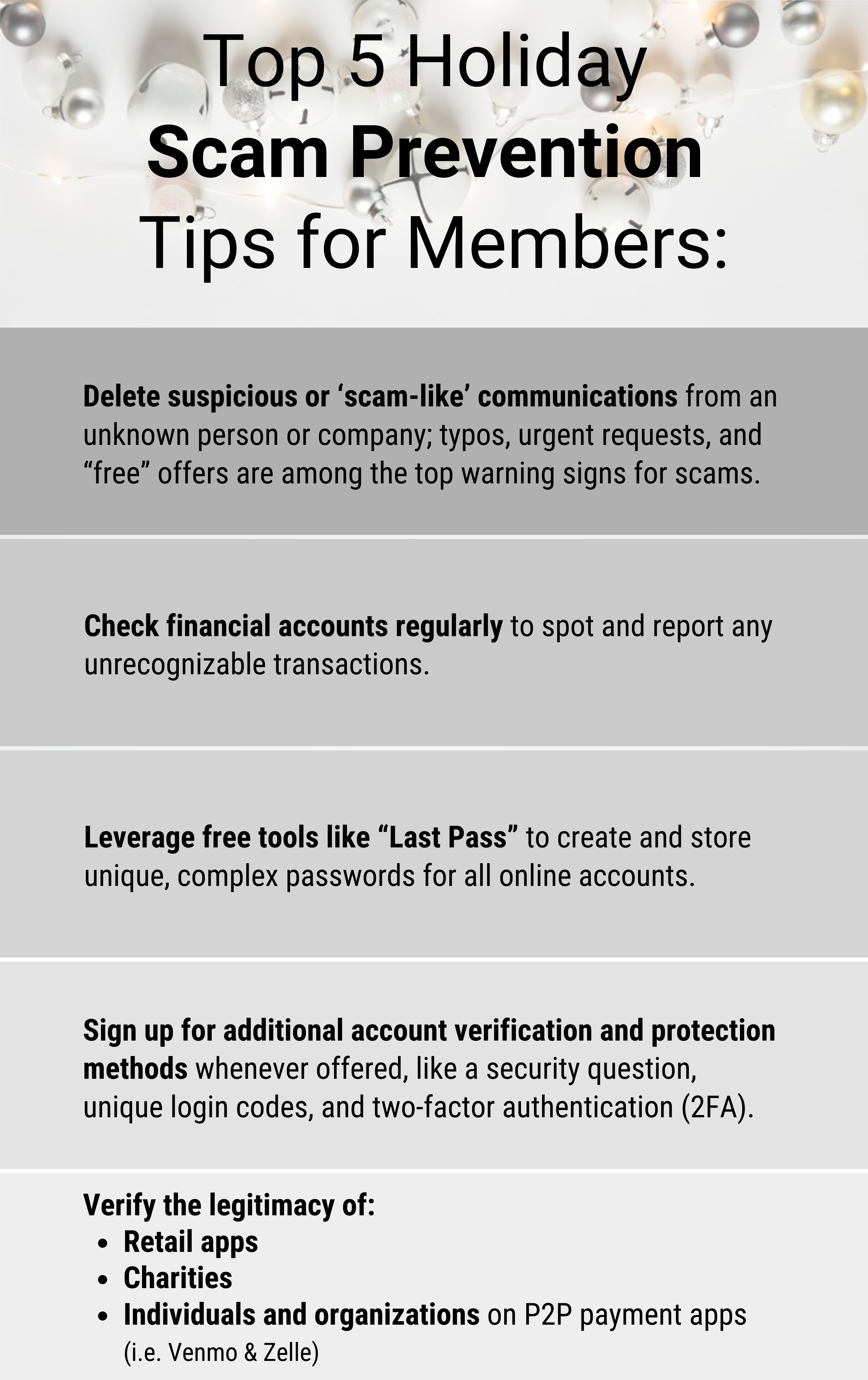Keep Cybercriminals Off Your Members’ Naughty Lists this Holiday Season
By Ann Davidson, Vice President | Risk Consulting, Allied Solutions
Black Friday and Holiday deals have begun, and with the COVID-19 pandemic, a much larger portion of this year’s purchasing activity will take place online. Cybercriminals are going to take to the internet to capitalize on this increase in online shopping. Online consumer scams, ACH fraud, card-not-present fraud, new account and loan fraud, and payment app fraud (i.e. Venmo, Zelle, and PayPal Direct) are among the fraud attacks that will be on the rise during this year’s holiday season.
It is important for your credit union to be vigilant and proactive in preventing these attacks, while also educating your employees and members on how to do the same.
Click Here to Download Allied’s Holiday Scam Prevention Checklist
Holiday Scam Prevention Tips for Credit Unions:
- Require multiple authentication layers to validate the identity of current and new accountholders.
- For current accountholders: Put in multiple layers to protect account access.
- For non-current accountholders: Take extra steps to verify the identity of requesters of a new loan, account, or product.
- Offer accountholders the option to receive instant transaction alerts, so they can quickly spot and report fraudulent activity.
- Ensure your institution is participating in 3DSecure to protect your members’ cards from card-not-present fraud attempts.

- Set a maximum daily dollar limit for both ACH and debit card payment app authorizations to mitigate fraud attacks attempted through this channel.
- Validate the source of any paper check deposit, ACH transfer, or wire transaction before clearing these.
Holiday Scam Prevention Tips for Members:
- Delete suspicious or ‘scam-like’ communications from an unknown person or company; typos, urgent requests, and “free” offers are among the top warning signs for scams.
- Check financial accounts regularly to spot and report any unrecognizable transactions.
- Leverage free tools like “Last Pass” to create and store unique, complex passwords for all online accounts.
- Sign up for additional account verification and protection methods whenever offered, like a security question, unique login codes, and two-factor authentication (2FA).
- Be careful when downloading retail apps to avoid downloading look-alike apps created to steal information.
- Verify the legitimacy of a charity before contributing to any donation requests from an unknown source, as fake charity scams ramp up this time of year.
- When using P2P payment apps like Venmo or Zelle, make sure to verify the legitimacy of the individual or organization before sending the money through this channel.
And for more ways to prevent fraud this holiday season, check out our interview with Ann Davidson.
